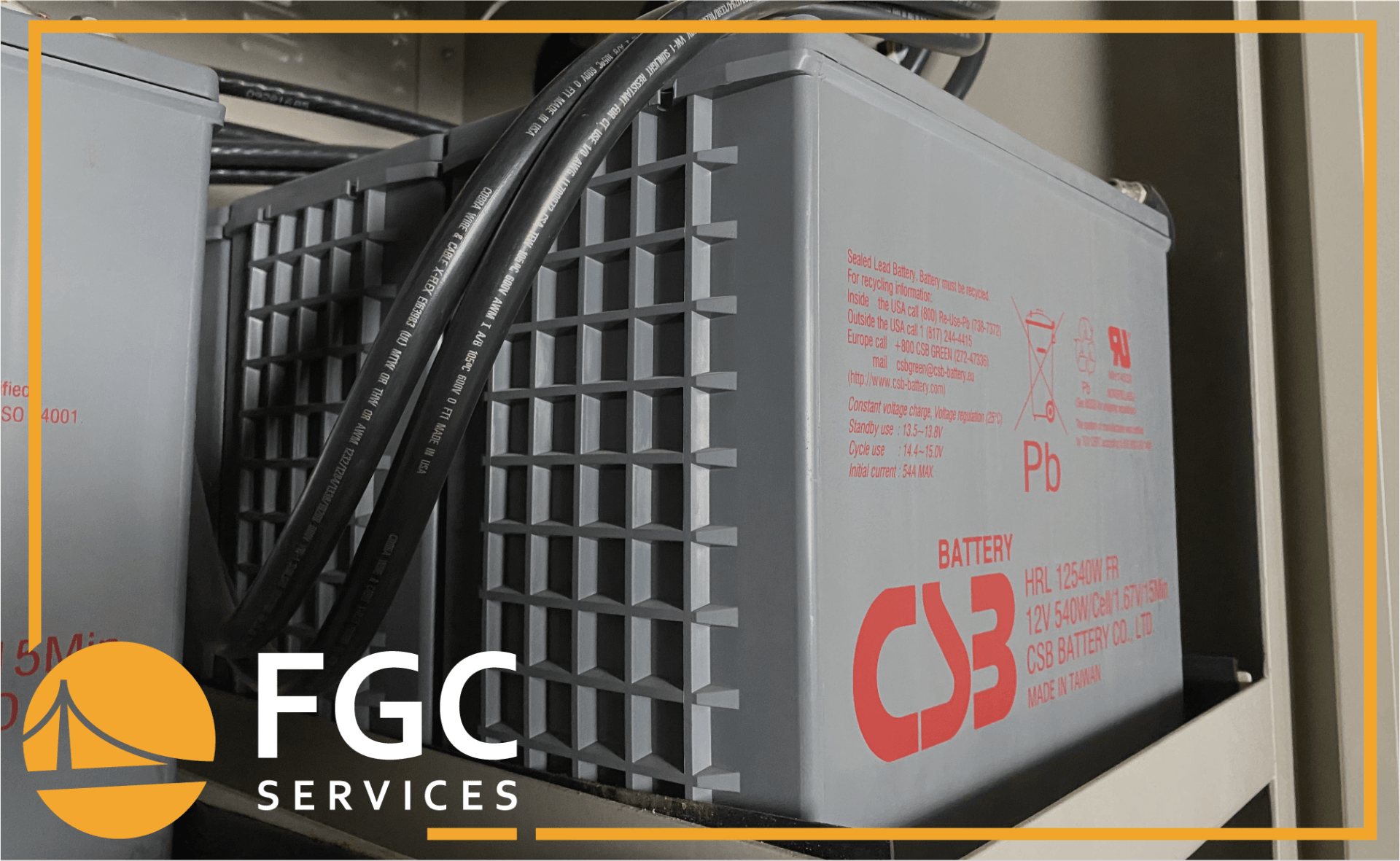The Importance of UPS Preventative Maintenance for Your Power Supply
18 April 2022
Share this article:
Certain equipment needs to function 24/7 in your facility based on your times of operation. Your uninterruptible power supply (UPS) system is included. If the UPS goes down, your facility's equipment may lose power at critical times. This factor can hamper operations, cause data to be lost, and lead to lost profits.
However, even the components in the UPS system itself may fail. From reaching the end of their shelf life to experiencing a defect or malfunction, the UPS system could go down at the worst possible time without you knowing it. By performing consistent UPS maintenance, you ensure that these industrial generators will remain at top performance throughout the entire year.

The Importance of UPS Maintenance
UPS maintenance allows you to get a snapshot of the current health of your critical power equipment systems. You're able to check the functions of components and perform quick repairs to any worn parts. You also may take note of any anomalies that could impact the future performance of the equipment and order specific spare parts in advance to have them available when required. We call these spare parts kits.
When you perform regular preventive maintenance, your UPS system offers a range of additional benefits. In addition to reducing downtimes by keeping machines running during power outages, an efficient UPS system also prevents power fluctuations and surges from negatively impacting equipment. The UPS system kicks in during these times, ensuring that the right electrical current level is maintained to keep equipment running. It prevents surges that could damage components.
UPS maintenance also improves energy efficiency by ensuring that all components are running at optimal levels. The lifecycle of the system becomes prolonged, which leads to a decrease in operational costs that occur during downtimes. This maintenance also allows engineers to spot potential problems that could cause the UPS to experience a serious malfunction and costly downtime.
Battery Testing for UPS Maintenance
The critical component of the UPS system involves the battery. When there is any power interruption or surge, the battery supplies the power for the facility's equipment. However, batteries have a shelf life. Overcharging, undercharging, extreme temperatures, electrolyte loss, improper venting, and other factors may cause the battery to fail in the UPS system.
Battery testing as part of the UPS maintenance task allows you to know the battery cell's state of health (SoH) and state of charge (SoC). The battery must be able to support the connected load -- the equipment directly attached to the UPS system -- to avoid catastrophic failure.
Battery testing typically involves checking the condition of the terminals, connections, float charges, and open circuits. The service team also performs impedance testing and voltage readings. Our engineers also evaluate the working environment for the UPS system, as well as checking for corrosion damage to inter-cell and inter-cabling systems.
If the battery needs replacement, the service team performs the palletization and string removal of the old battery. Then we install the new UPS battery while following all manufacturer instructions.
Emergency Call Response for UPS Maintenance
Sometimes even with the most comprehensive maintenance schedule, some issues aren't caught until it is too late. When creating a UPS maintenance plan, you need to have emergency call response procedures in place when the UPS system malfunctions or fails unexpectedly.
Emergency call response should involve forming a strong business relationship with the service team. The field engineer should come to the site immediately after the call and remain onsite until the UPS system issue becomes resolved. They will evaluate the entire system to identify the root causes and then provide a report of possible solutions. Before providing any repairs, the field engineer obtains authorization to ensure that you fully understand the issue, the repair services that will be provided, and the costs for the entire emergency call response.
Once obtaining authorization, the service team performs the necessary work efficiently to minimize downtimes. They issue you both a field service report and root cause analysis report for your maintenance records.
Spare Parts for UPS Maintenance Purposes
With consistent maintenance, you come to understand which UPS system parts wear out faster than others or need repairs more often. Then you may order spare parts well in advance and stock the right amounts you need to perform any quick emergency repairs. A UPS maintenance service team should have access to parts for all UPS equipment brands.
We offer part kits stocking for facilities and ensure those kits are up-to-date with the latest UPS models and technologies. In addition, we also offer parts for UPS systems that date back for 20+ years in product age. To do this, we recycle UPS systems no longer used by other facilities. Our teams repair, test, and service these recycled parts to ensure that the equipment operates at optimal levels while providing a 90-day warranty when our engineer performs the installation.
Our Maintenance Contract Types
At Facility Gateway Corporation (FGC), we offer several maintenance contracts for facilities based on their UPS maintenance needs and their budgets. We also offer customized service contracts tailored to your facility's current and future maintenance needs. We fully assess the UPS system and working environment, as well as your standard operating procedure and maintenance operating procedure, to design a contract that meets your requirements.
In addition, we also provide hybrid contracts if you have several UPS systems onsite that require different levels of maintenance. So you can pick out the right contract type for each UPS system. Our standard service contracts provide the following options.
Preventive Maintenance (PM) Only: Emergency call services, quoted parts and labor, technical support, and OEM warranty until exhausted
PM Plus: Emergency call services, technical support, quoted parts and labor, OEM warranty until exhausted, and guaranteed response time
Full Service: Emergency call services, OEM warranty until exhausted, technical support, guaranteed response time, parts and labor covered by FGC
Keeping your UPS system working at full capacity at all times is essential. Let FGC provide you with the maintenance services that best fits into your facility's operations. For more information regarding our services or to select a service contract, get in touch with our service engineers today.
Connect with Us:





